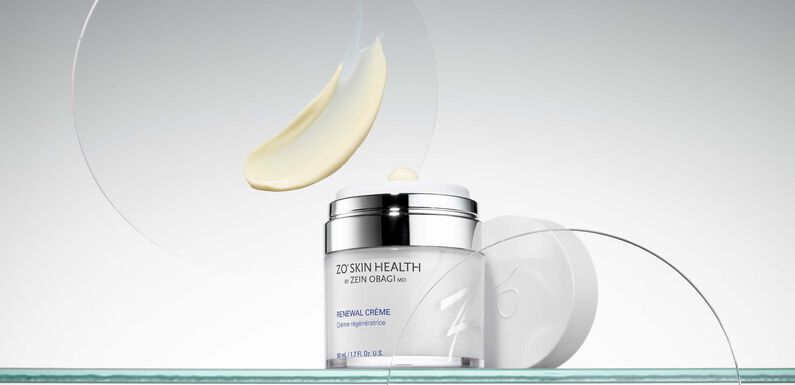Dehydrated Skin vs Dry Skin: What's the Difference?
By ZO® Skin Health
A glowy, dewy complexion is a sign of healthy skin, so it’s only natural that skin looking and feeling dry becomes a growing concern among patients, especially as the days grow colder. Dryness and dehydration are both words that get thrown around interchangeably. However, there is a difference between these two skin issues causing treatment options to vary.
Many people suffer from dry and dehydrated skin. But how do you know the difference and, is there really a difference? Let the ZO® Skin Health experts explain.
What Is Dry Skin?
Dry skin is often a long-term condition influenced by genetics. It occurs due to an impairment in the production of lipids that compose skin’s moisture barrier. As a result, water is lost from the skin. While some people can be born with naturally dry skin, it can also be caused by other factors. Extreme hot and cold temperatures can exacerbate dryness; harsh skincare products can strip the skin. Medical conditions, hormones and natural skin aging can also be the cause.
Dry skin needs to be managed daily to maintain skin health. ZO’s approach requires starting with the basics. A customized Getting Skin Ready® protocol for dry skin types is the best place to start—Hydrating Cleanser, Exfoliating Polish and Calming Toner all work synergistically to minimize dryness and infuse the skin with hydration.
Extreme hot and cold temperatures can exacerbate dryness; harsh skincare products can strip the skin.
What Is Dehydrated Skin?
Dehydrated skin is more of a temporary condition. Like with dry skin, dehydrated skin is often an issue associated with a damaged skin barrier.
A damaged skin barrier cannot adequately maintain water and moisture levels in the skin. Dehydrated skin can also be caused by a lack of water consumption and extreme weather conditions. If you notice a lack of elasticity in your skin, as well as pronounced fine lines and wrinkles, it may not be a sign of premature aging, but a symptom of dehydrated skin. It’s an issue that can affect anyone, even oily skin types.
Healthy skincare and wellness habits are needed to treat dehydrated skin, like drinking the right amount of water daily and receiving additional hydration from electrolytes. ZO® functional hydrators can supplement your skincare routine with deeply nourishing ingredients to help restore a hydrated appearance and support the skin’s protective barrier. For mild symptoms of dryness, use the Renewal Crème in the AM and for more moderate symptoms, try the Recovery Crème, which is Renewal Crème’s richer, more emollient counterpart—also clinically proven to improve signs of skin aging.
What’s The Difference Between Dry And Dehydrated Skin?
Dry skin and dehydrated skin may present similarly, but not every person with dry skin has dehydrated skin, and not every person with dehydrated skin has a dry skin type. While some symptoms may be similar, dry skin is classified as a skin type, while dehydrated skin is a skin condition. Contact your ZO® physician to find which category your skin falls under.
Shop the Post
Hydrating Cleanser
GSR® Normal to Dry Skin
Exfoliating Polish

GSR® All Skin Types Normal to Dry Skin
Calming Toner
GSR® Normal to Dry Skin Normal to Sensitized Skin
Renewal Crème
AM or PM Dry to Sensitized Skin Hydration
Recovery Crème
AM or PM Dry to Sensitized Skin Hydration





